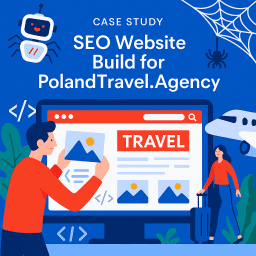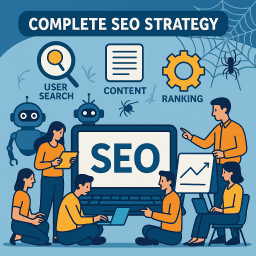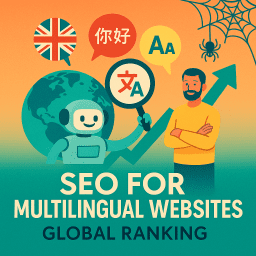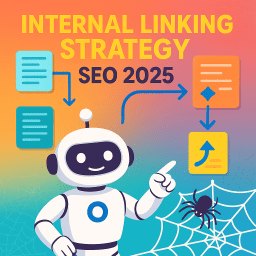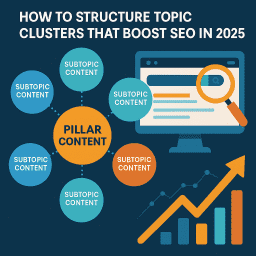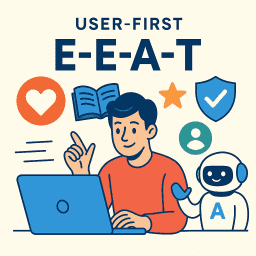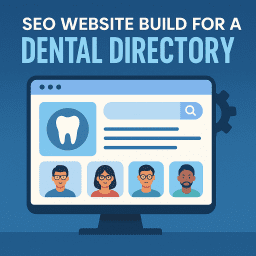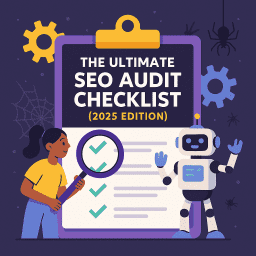Solo SEO: How One-Person Businesses Can Win in 2025
Simple, smart strategies for solopreneurs and consultants

🎯 One Person, Big Results: Smart SEO for Small Teams
🧭 SEO can feel overwhelming when you’re doing it alone. No team. No agency. No fancy tools. Just you—and everything from writing blog posts to fixing broken links to figuring out why your site disappeared from Google last week.
But here’s the truth: you don’t need to do everything to succeed with SEO as a one-person business. You just need to do the right things.
In this guide, we’ll walk through a focused, manageable SEO strategy tailored for solopreneurs, freelancers, and consultants—one that gets results without consuming your life.
🎯 Set Realistic SEO Goals
First things first: what do you actually want SEO to do for your business?
- Getting more qualified leads or enquiries
- Building trust through helpful, optimised content
- Ranking for niche-specific keywords
- Reducing reliance on paid ads or referrals
Pick one or two clear goals—and use them to guide every SEO task you tackle.
🔍 Choose Your Keywords Carefully
As a one-person team, you can’t chase hundreds of keywords. Instead, focus on:
- Long-tail keywords with lower competition
- Problem-based queries that show clear intent
- Local keywords if your business serves a specific region
Example: Instead of “web designer”, try “affordable web design for coaches in Manchester”.
Tools: Use free options like Google Autocomplete, Ubersuggest, or AnswerThePublic. Don’t get buried in data—look for clarity and intent.
📄 Focus on High-Impact Content
You don’t need 100 blog posts. You need 10 great ones that actually rank and convert.
Priority content for solopreneurs:
- Homepage – Clear messaging, service summary, primary keyword
- Service pages – One per service, each optimised for a specific search term
- About page – Human, personal, and trust-building (this supports E-E-A-T)
- Blog content – Target 1–2 helpful posts per month that answer real client questions
Don’t aim for quantity—aim for usefulness.
🛠️ Get the Tech Basics Right
You don’t need to be a developer to have technically sound SEO. Focus on:
- Mobile-friendly design
- Fast page loading (use tools like GTmetrix or PageSpeed Insights)
- Proper headings (H1, H2)
- Secure HTTPS connection
- Readable URLs with keywords (e.g.
/services/seo-consulting)
Bonus tip: Use a lightweight WordPress theme and an SEO plugin like Rank Math or Yoast to stay on top of the basics.
📈 Monitor What Matters (and Ignore the Rest)
Time is your most limited resource. Don’t waste it checking stats every 10 minutes. Instead, track:
- Organic traffic growth in Google Analytics 4
- Impressions and clicks in Google Search Console
- Leads or enquiries from organic search
Track once a month. Use that data to tweak and improve—not to panic.
🔗 Build Links Naturally (and Simply)
You don’t need a big link-building campaign. Instead, try:
- Getting listed in local directories or niche listings
- Writing guest posts for relevant blogs or partners
- Collaborating with peers (think podcast interviews or joint webinars)
- Answering questions on Quora or Reddit with a link back to helpful content
Think quality over quantity. Just a handful of relevant backlinks can move the needle.
💡 Automate What You Can
As a one-person operation, automation is your best friend. Use:
- ChatGPT to outline blog posts or write meta descriptions
- Rank Math or Yoast for real-time on-page optimisation
- Google Search Console alerts for crawl or indexing issues
Use tools to reduce effort—not add complexity.
📚 Use a Simple SEO Routine
Here’s an easy monthly routine to stay consistent:
- Week 1: Review metrics (traffic, clicks, leads)
- Week 2: Update an existing page or blog
- Week 3: Write one new piece of content
- Week 4: Do one outreach activity (e.g., guest post or podcast)
One hour per week is enough to stay visible and grow gradually.
⚠️ Common Pitfalls to Avoid
- Trying to rank for broad or overly competitive keywords
- Writing content without clear intent or keywords
- Ignoring local SEO when location matters
- Getting stuck in endless research mode and not publishing
Progress > perfection.
🧠 What the Experts Are Saying
“You can absolutely outrank bigger brands if you focus on one niche, one audience, and one intent.” — Claire Carlile
“Don’t worry about volume. Serve real people in real situations. SEO will follow.” — Dana DiTomaso
“Consistency beats complexity every time. One-person SEO can win.” — Aleyda Solis
📝 Recap and Clarify: Post-Specific FAQs
Can a one-person business do SEO effectively?
Yes—by focusing on core pages, local visibility, and long-tail keywords, even a solo entrepreneur can compete in organic search.
How long does SEO take to work for a solo business?
Expect 3–6 months to see measurable traction if you publish content and earn links consistently. It’s a slow burn, but it builds momentum.
What’s the most important thing for solo SEO success?
Consistency. A simple, repeatable process that prioritises real value over SEO tricks will always outperform random effort.
💬 Final Thought
“One-person SEO isn’t about doing everything—it’s about doing the things that actually matter. Be consistent. Be intentional. You will grow.” — David Roche


